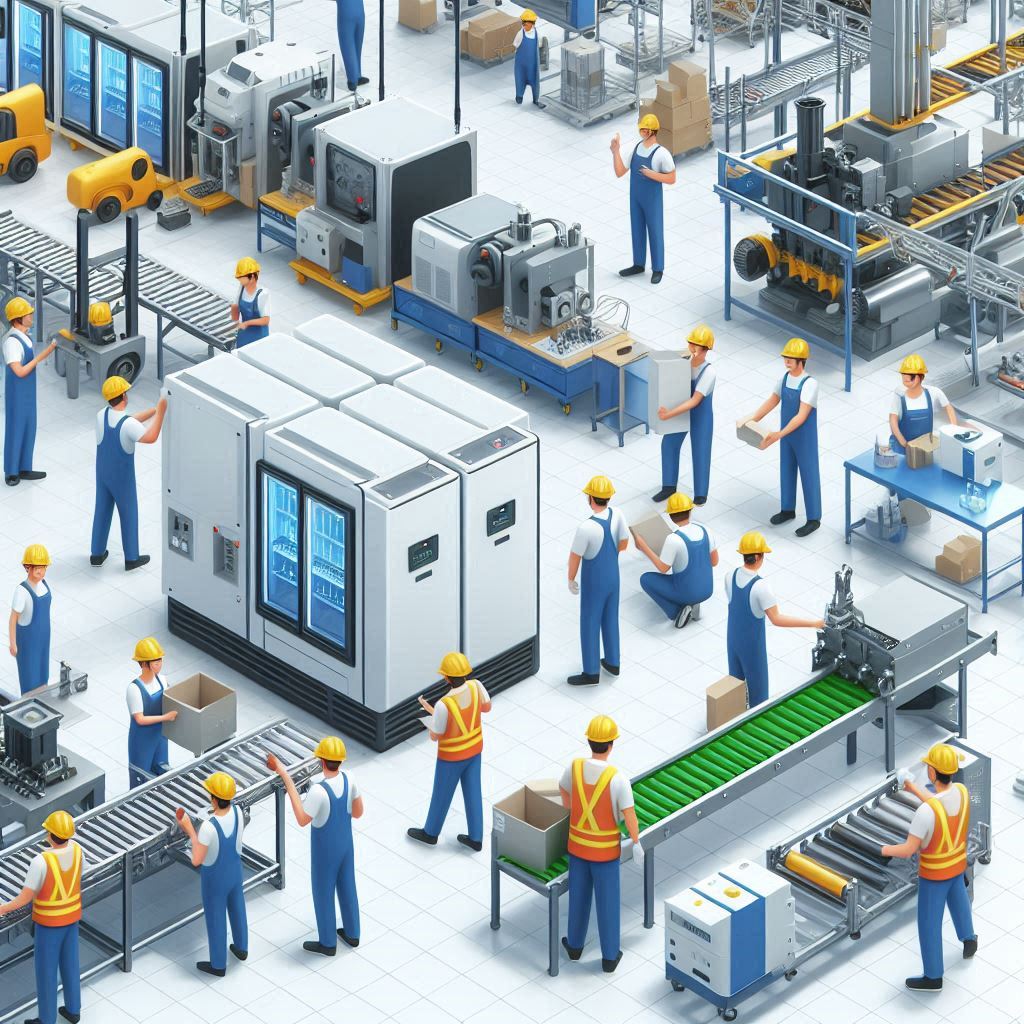Refrigeration coolers Market are essential to modern life, playing a critical role in industries such as food and beverage, pharmaceuticals, retail, and logistics. However, traditional cooling systems are notoriously energy-intensive, contributing to high operational costs and environmental impact. Now, Artificial Intelligence (AI) is emerging as a transformative force, enabling refrigeration systems to become smarter, more energy-efficient, and environmentally responsible. From dynamic temperature control to predictive maintenance, AI is redefining how refrigeration coolers operate—ushering in a new era of smart energy management.
The Need for Smart Energy Management in Refrigeration
Refrigeration of electricity consumption in supermarkets and food processing facilities. In commercial and industrial settings, even small inefficiencies can translate into substantial energy losses. AI introduces a proactive approach by analyzing real-time data and automating processes that were previously reactive or manual. The result is a significant reduction in energy usage, operational downtime, and maintenance costs, while also improving system reliability and food safety.
How AI Optimizes Refrigeration Systems
1. Real-Time Monitoring and Adaptive Cooling
AI-powered sensors and algorithms continuously monitor internal and external conditions—such as ambient temperature, humidity, and load demand. These systems adjust compressor speeds, fan operation, and defrost cycles in real time, ensuring that cooling is delivered exactly when and where it’s needed, without unnecessary energy expenditure.
2. Predictive Maintenance and Fault Detection
Traditional refrigeration systems often fail without warning, leading to product spoilage or system downtime. AI can predict failures before they happen by analyzing equipment behavior and historical performance data. This predictive maintenance approach helps technicians address issues early, extend equipment life, and minimize disruptions.
3. Load Forecasting and Energy Optimization
AI algorithms can forecast future cooling loads based on usage patterns, weather data, and time of day. This capability allows systems to pre-cool during off-peak hours and minimize compressor usage during high-tariff periods, resulting in significant cost savings and more efficient grid management.
Download PDF Brochure @
https://www.marketsandmarkets.com/pdfdownloadNew.asp?id=250448757

Applications Across Key Industries
Retail and Supermarkets
AI integration in supermarket refrigeration leads to centralized monitoring of multiple units, optimized temperature control for perishable items, and automated alerts for anomalies. Retailers benefit from lower energy bills, reduced food waste, and improved compliance with food safety standards.
Food Processing and Cold Chain Logistics
In cold storage warehouses and transportation, AI ensures consistent temperature control, even during power fluctuations or transit delays. The technology helps maintain cold chain integrity, improving product quality and extending shelf life.
Pharmaceuticals and Healthcare
For sensitive biological materials, vaccines, and medications, AI enables precise thermal regulation and secure data logging, which are essential for regulatory compliance and patient safety.
Sustainability Benefits of AI in Refrigeration
AI-enhanced refrigeration contributes directly to carbon footprint reduction. By optimizing energy consumption and reducing refrigerant leakage through early detection, AI systems support organizations in achieving ESG goals and green certification standards. Moreover, AI can integrate with renewable energy sources and smart grids, allowing refrigeration systems to shift loads based on availability of clean energy.
Challenges and Considerations
- While the potential is vast, AI adoption in the refrigeration industry comes with challenges:
- High initial costs for retrofitting legacy systems with smart sensors and controllers.
- Cybersecurity risks, as AI-connected refrigeration units become part of the larger IoT ecosystem.
- Data quality and integration, requiring robust platforms that can handle and interpret complex datasets from diverse hardware sources.
- Overcoming these barriers requires investment, standardization, and collaboration among equipment manufacturers, software providers, and end users.
Future Outlook: Smarter, Greener, Colder
The global push for sustainability, coupled with advances in AI and IoT, is driving next-generation refrigeration technologies. Future systems will be more autonomous, capable of self-optimizing operations and integrating with smart building systems. With machine learning models continuously improving, these systems will soon be able to predict market demands, manage inventory cooling accordingly, and even schedule maintenance without human input.
Governments and regulatory bodies are also supporting this trend by offering incentives for energy-efficient refrigeration systems, further accelerating AI adoption.
Conclusion: A Cooler Future with Intelligence
AI is no longer a futuristic concept—it’s actively transforming the refrigeration coolers industry by making systems intelligent, responsive, and sustainable. Through smart energy management, businesses can achieve greater efficiency, reliability, and environmental compliance, all while lowering operational costs. As the demand for refrigeration grows globally, especially in emerging markets and climate-sensitive sectors, AI will be central to ensuring that the cold stays cold—without warming the planet.
